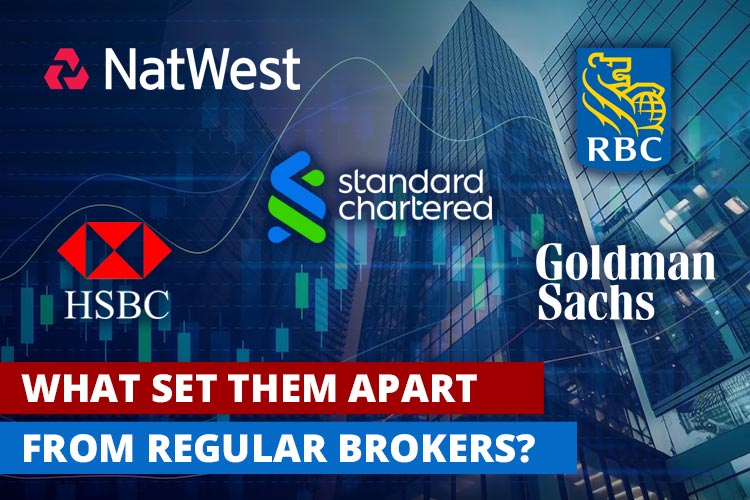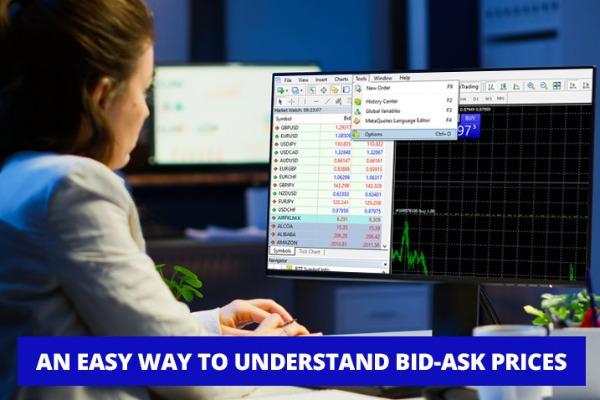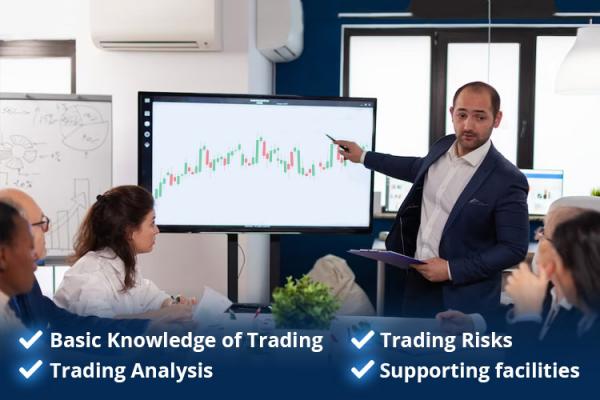Prime brokers are investment banks and other financial institutions that offer bundled and consolidated financial services across asset classes for hedge funds and other large investment clients.

Prime brokers. The term may appear while you are browsing through financial pages or your own broker's profile page. However, readers rarely understand what a prime broker means and how it differs from regular brokers. This article aims to explain them to you in a clear and concise manner.
Who are Prime Brokers?
Prime brokers are investment banks and other financial institutions that offer bundled and consolidated financial services across asset classes for hedge funds and other large investment clients. Prominent prime brokerage services are usually provided by top investment brokers such as Morgan Stanley, UBS, Standard Chartered Bank, NatWest Bank, Royal Bank of Canada, Goldman Sachs, JP Morgan Chase, Deutsche Bank, HSBC, Barclays, Citi, Nomura, etc.
Prime brokers can also be called as "main brokers" or "central brokers". They are the brokers for regular brokers, hedge funds, and other financial institutions.
To understand the role of prime brokers, you have to first understand that hedge funds and institutional investors have highly diversified portfolios. None of them are investing in a single market. As such, they may have to engage with numerous brokers and numerous accounts in numerous countries to execute their investment decisions at all times. This is obviously very complicated, and so prime brokerage services were born in the 1980s.
An institutional investor may assign a prime broker to consolidate their numerous accounts. All executions done by their regular brokers will be routed to the prime broker. The prime broker will then help to safeguard their wealth, gather data for reporting and accounting, balance their positions, provide financing (leverage), manage risks and collaterals, and more. A prime broker may also offer in-depth research and find new investors for hedge funds.
So, how do prime brokers make money? Prime brokers receive quite a lot of money from various service fees and financing operations. They may also use their client's collateral to invest and grow their own portfolio (only when the client approves it).
Prime Brokers vs. Regular Brokers
There are five main differences between a prime broker and a regular broker. They involve mainly target groups, services, fees, licenses, and networks.
Prime brokers target institutional investors and high-net-worth individuals (HNWIs). They offer various services, starting with research, financing with high collaterals, and more. They may also execute trades on behalf of their clients for larger trades and elaborately structured derivatives. In accordance with their huge responsibilities, they may require millions of dollars in deposits and charge higher fees for their clients.
How much is the minimum deposit requirement at prime brokers? You must have a minimum of $500,000 in equity to qualify for prime brokerage services in the US (other countries may have different legal requirements). However, most clients have at least $50 million.
Prime brokers are subject to stricter regulation and more expensive licenses due to the complexities of their services. The financial company that offers prime brokerage services may also create shell companies on offshore islands for specific purposes, but prime brokerage services cannot be operated under offshore licenses.
Their network consists of hedge funds and other financially-sound clients—those who need high-quality, legitimate investments and do not hesitate to pay exorbitant amounts for them.
Regular brokers target retail investors and offer fewer services. They typically extend high leverage with few collaterals to facilitate smaller trades on specific markets, such as stock market, CFDs, and so on. As such, they demand fewer deposits (starting from $1) and charge cheaper fees (starting from $0).
Supervision of regular brokers varies between countries. Some of them are strict, some others are lax. In today's booming internet businesses, various entities may even proclaim themselves as "financial brokers" under dubious offshore licenses. It doesn't matter, because regular brokers stand on the lower rung of the ladder and their clients may not prioritize legal concerns.
| Aspects | Prime Brokers | Regular Brokers |
| 👨👦👦Target groups | Institutional investors | Retail investors |
| 👔Services | Bundled services for a wide range of asset classes | Limited range of services for specific asset classes |
| 💸Fees | More expensive | Cheaper |
| 📃Licenses | Strict and expensive | Vary |
| Networks | Top of the range | Vary |
See Also:
Can We Join Prime Brokers?
The term "prime" in "prime brokers" implies a degree of excellence and distinction. It suggests that prime brokers' services are of the highest caliber and are customized to meet the unique requirements of institutional-grade clients.
So, "Can we join prime brokers?" is the wrong question. Instead, what you need to ask is, "Do we need prime brokers?"
A regular broker is usually capable of satisfying most retail investors' requirements. After all, retails do not have millions of dollars to manage and will not pay thousands of dollars in service fees every year.
It's highly unlikely that you need a prime brokerage agreement unless you manage a hedge fund, a pension fund, or some other type of financial institution. Even day traders who make hundreds of daily transactions do not need prime brokerage services because their trades are not too complicated.
In case you DO manage a hedge fund or some other type of financial institution, there is only one step you need to take to join prime brokers: Call your bank and tell them your identity. They will connect you to their prime brokerage division, or else they will redirect you to the nearest prime broker if they don't have one.
See Also:
Busting Myths About Prime Brokers
Prime brokers' illustrious reputation often invites incorrect assumptions and misguided questions. Well, such as "Can we join prime brokers?" above.
Here we are busting two other myths about prime brokers:
- Regular CFD and Forex brokers are NOT prime brokers.
If you are looking for prime brokers, Google is not your friend. Queries about "prime brokers list" on the search engine will lead you to unreliable answers written by bogus content writers, including offshore CFD and forex brokers that are as far away from the definition of "prime brokers" as possible.
- Prime brokers are market makers, but they are DIFFERENT from retail market makers.
Prime brokers are also known as "market makers" because the same company may act as a counterparty for their clients transactions. Lots of beginners often confuse "prime brokers" and regular market maker brokers (dealing desk brokers) due to this reason. However, it should be noted that prime brokers engage in a wider range of services and are subject to stricter regulation. Prime brokers also have distinctive operations and networks.
Lots of big banks who act as prime brokers may also be known as "liquidity providers" by regular CFD and FX brokers. But big banks have separate desks for specific services. Prime brokerage is usually established under the sales division, which is of a different nature from their trading desk. Prime brokers have a whole different organizational policies and procedures compared to retail market makers.

 Dedicated FREE FOREX VPS
Dedicated FREE FOREX VPS Free FOREX Virtual Private Server
Free FOREX Virtual Private Server MT4 Demo Contest, Get $500
MT4 Demo Contest, Get $500 Sign Up for an Account, Claim 60% Deposit Bonus
Sign Up for an Account, Claim 60% Deposit Bonus Free MT4/MT5 VPS 2024
Free MT4/MT5 VPS 2024 Send E-mail and Get Free Merchandise
Send E-mail and Get Free Merchandise $1K Refer a Friend Bonus for Pepperstone Pro clients
$1K Refer a Friend Bonus for Pepperstone Pro clients Maximize Your Earnings with 100% Deposit bonus
Maximize Your Earnings with 100% Deposit bonus Trade to Win, $5,000 Monthly Demo Contest
Trade to Win, $5,000 Monthly Demo Contest Claim 30% + 15% Deposit Bonus from LiteFinance
Claim 30% + 15% Deposit Bonus from LiteFinance











